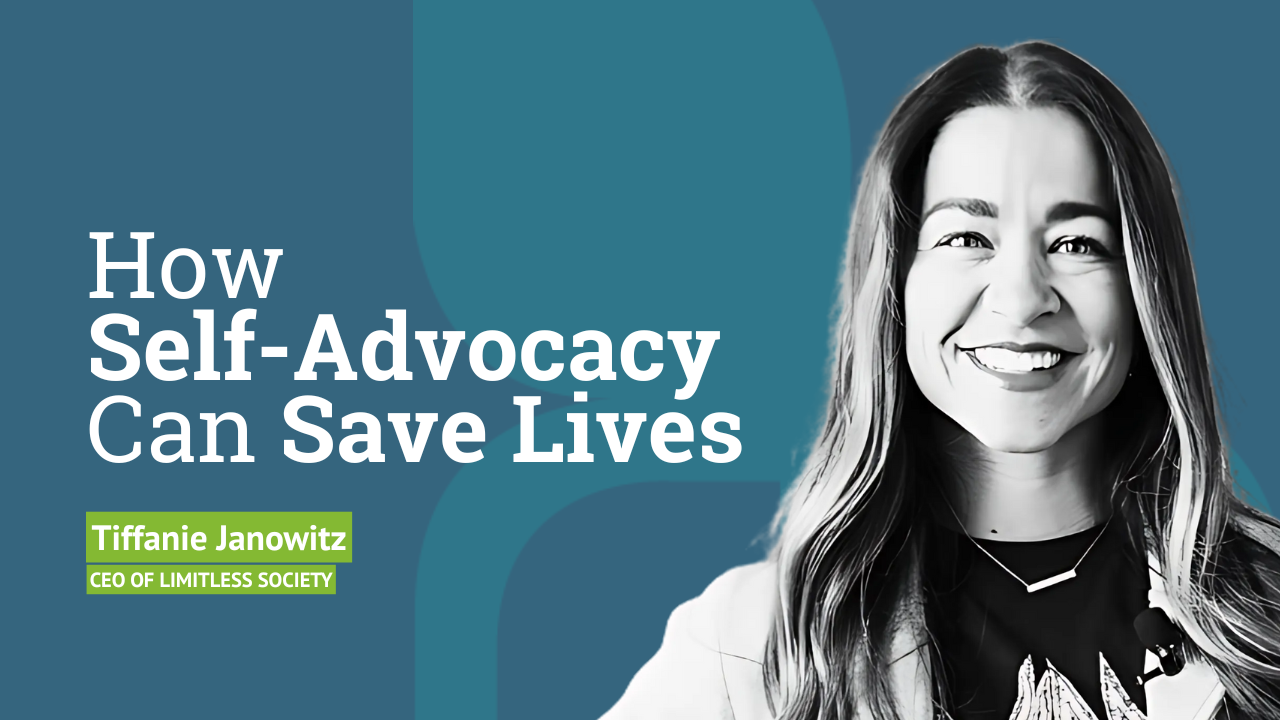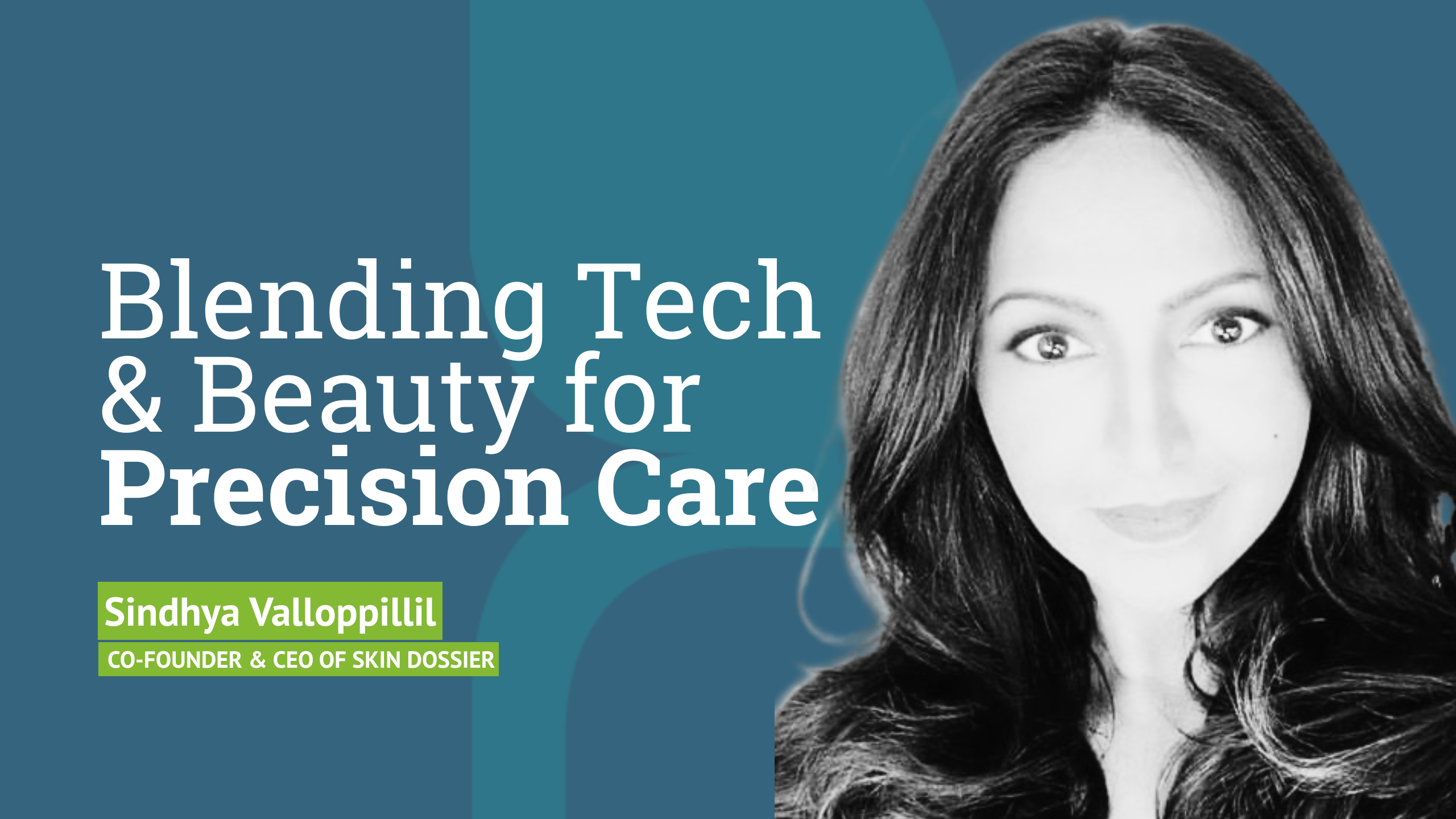
How AI is Unlocking Personalized Medical-Grade Skincare
Akina Pharmacy's CEO sits down with Skin Dossier founder Sindhya Valloppillil to explore how technology is reshaping personalized skincare
The dermatology world is experiencing a quiet transformation. While most patients still endure weeks-long waits for basic skin consultations, a new wave of technology companies is building solutions that could make personalized skin health as accessible as checking the weather on your phone.
Sindhya Valloppillil, CEO and co-founder of Skin Dossier, is leading this charge with an AI-powered platform that analyzes everything from your DNA to your daily stress levels to create truly personalized skincare recommendations. In a recent conversation on Akina Pharmacy's podcast, she shared how her company is bridging the gap between advanced technology and practical healthcare.
AI Goes Beyond the Surface to Personalize Your Skincare: What Skin Dossier Actually Does
Skin Dossier operates as what Valloppillil calls a "dermatology analytics API" — a platform that collects and analyzes multiple data streams to understand an individual's unique skin health profile. The process starts simple: a 15-question survey and 3D facial imaging using just your smartphone camera.
But that's where simple ends. The platform then layers in geolocation data (tracking weather, humidity, pollution, and UV exposure), wearable device metrics (stress levels, sleep quality, workout intensity), and diagnostic information including DNA analysis and blood work when available.
"With all of that, we understand an individual's biology, lifestyle and environment," Valloppillil explained. "All three of these things need to be taken into consideration when you're analyzing someone's health and trying to make recommendations."
The real power becomes clear through Valloppillil's personal experience. When she developed a persistent skin irritation that stumped her dermatologist, the traditional approach led to misdiagnosis and ineffective treatment. The issue was eventually traced to a combination of vitamin C exposure and sun sensitivity — something that comprehensive data analysis could have identified immediately.
The “Personalized” Telemedicine Problem Nobody Talks About
The conversation took an interesting turn when discussing the current state of telemedicine, particularly in dermatology and weight management. Valloppillil didn't mince words about companies like Hims, Curology, and others that market themselves as telemedicine providers.
"They call it telemedicine, but it's really just a quiz," she said. "There is no interaction between that patient and a nurse or a doctor. You can be 16 and get Ozempic. It's absurd."
This critique highlights a fundamental tension in healthcare technology: the balance between convenience and clinical responsibility. Current telemedicine platforms often meet only the minimum legal requirements for establishing a provider-patient relationship, which varies by state and can be as minimal as a completed online form.
The result is what Valloppillil calls "suboptimal treatment" — solutions that prioritize scalability over patient outcomes. Her vision for true telemedicine involves comprehensive data analysis combined with meaningful provider interaction, even if that interaction is brief.
Where Compounding Pharmacies Fit In
The discussion naturally progressed to compounding pharmacies and their role in personalized medicine. Unlike mass-produced medications, compounded treatments can be tailored to address multiple skin conditions simultaneously — combining anti-inflammatory and antimicrobial agents, for example, or adjusting concentrations based on individual sensitivity.
"I'm very pro compounding pharmacy and I think compounding pharmacies are providing access and democratizing these drugs," Valloppillil noted. "They are oftentimes also customizing the drugs for patients."
This aligns perfectly with Skin Dossier's approach. When comprehensive data reveals that a patient needs a specific combination of treatments at particular concentrations, traditional off-the-shelf solutions often fall short. Compounding pharmacies can create precisely what the data indicates the patient needs.
The Implementation Reality
For dermatologists interested in incorporating this technology, Valloppillil describes a straightforward integration process. Practices can provide patients with a link to complete their Skin Dossier profile before appointments, giving providers comprehensive insights before the patient even walks through the door.
The platform operates on a SaaS model, with potential for EHR integration. More importantly, Valloppillil emphasizes that the learning curve is minimal: "It's pretty easy to implement."
This simplicity is crucial for adoption in medical practices that are often resistant to new technology. The goal isn't to complicate the provider's workflow but to enhance it with better information.
Looking Ahead: The Bigger Picture
Valloppillil's vision extends beyond individual patient care to systemic healthcare improvements. She points to diversity and inclusion as a driving force, noting that clinical studies by major beauty companies have historically excluded older patients and people of different races, despite the fact that different populations respond differently to treatments.
"You don't get more personalized than that when you consider someone's genome and blood work,"
The sustainability angle is equally compelling. When patients receive truly personalized recommendations, they're less likely to waste money on products that don't work for their specific needs.
Currently, Skin Dossier operates as a B2B platform, working with retailers, brands, med spas, and dermatology practices. While Valloppillil envisions a future direct-to-consumer application, the current focus remains on perfecting the technology and building partnerships with established healthcare providers.
The Challenge of Being First
Like many healthcare technology innovators, Valloppillil faces the challenge of educating two different worlds simultaneously. Traditional beauty industry investors often don't understand SaaS models, while tech investors can be put off by anything labeled "skincare" or "beauty."
"Some people don't want to evolve. Other people don't understand the science part of it," she reflected. "And you really need all of that."
This resistance to change in healthcare isn't unusual, but it creates opportunities for companies willing to push forward with better solutions. As Valloppillil noted, "therein lies the opportunity because people, some people don't want to evolve."
What This Means for the Future
The conversation between traditional healthcare and emerging technology isn't always comfortable, but it's necessary. Platforms like Skin Dossier represent a bridge between these worlds — using advanced technology to enable better clinical decisions rather than replacing human expertise.
For dermatologists, the promise is clear: better patient outcomes through better information. For patients, it's access to truly personalized care that considers their unique biology, lifestyle, and environment.
The technology exists today. The question isn't whether this approach will become standard practice, but how quickly healthcare providers will embrace it. As the discussion revealed, the early adopters will likely have significant advantages in both patient outcomes and practice efficiency.
For dermatologists interested in exploring Skin Dossier's platform, Valloppillil can be reached at sindhya@skindossier.com or through LinkedIn. The integration process is designed to be straightforward, with the potential to transform how practices approach personalized patient care.
The future of dermatology might not look like the crowded waiting rooms and rushed consultations of today. Instead, it could look like comprehensive, data-driven care that treats each patient as the unique individual they are. That future is closer than we think.
About the Akina Pharmacy Speaker Series
The Akina Pharmacy Speaker Series explores the world of compounding care and personalized medicine through conversations with clinical specialists, partners, and subject matter experts. Each episode delves into how individualized approaches to healthcare are reshaping patient outcomes and empowering people to take control of their health.
At Akina Pharmacy, we're built on the Hawaiian principle of Kina'ole—doing the right thing in the right way for the right person at the right time, the first time. As a 503A compounding pharmacy, we don't just compound medications; we compound trust, quality, and innovation into every formulation we create.
To learn more about Sindhya's work, visit skindossier.com.


